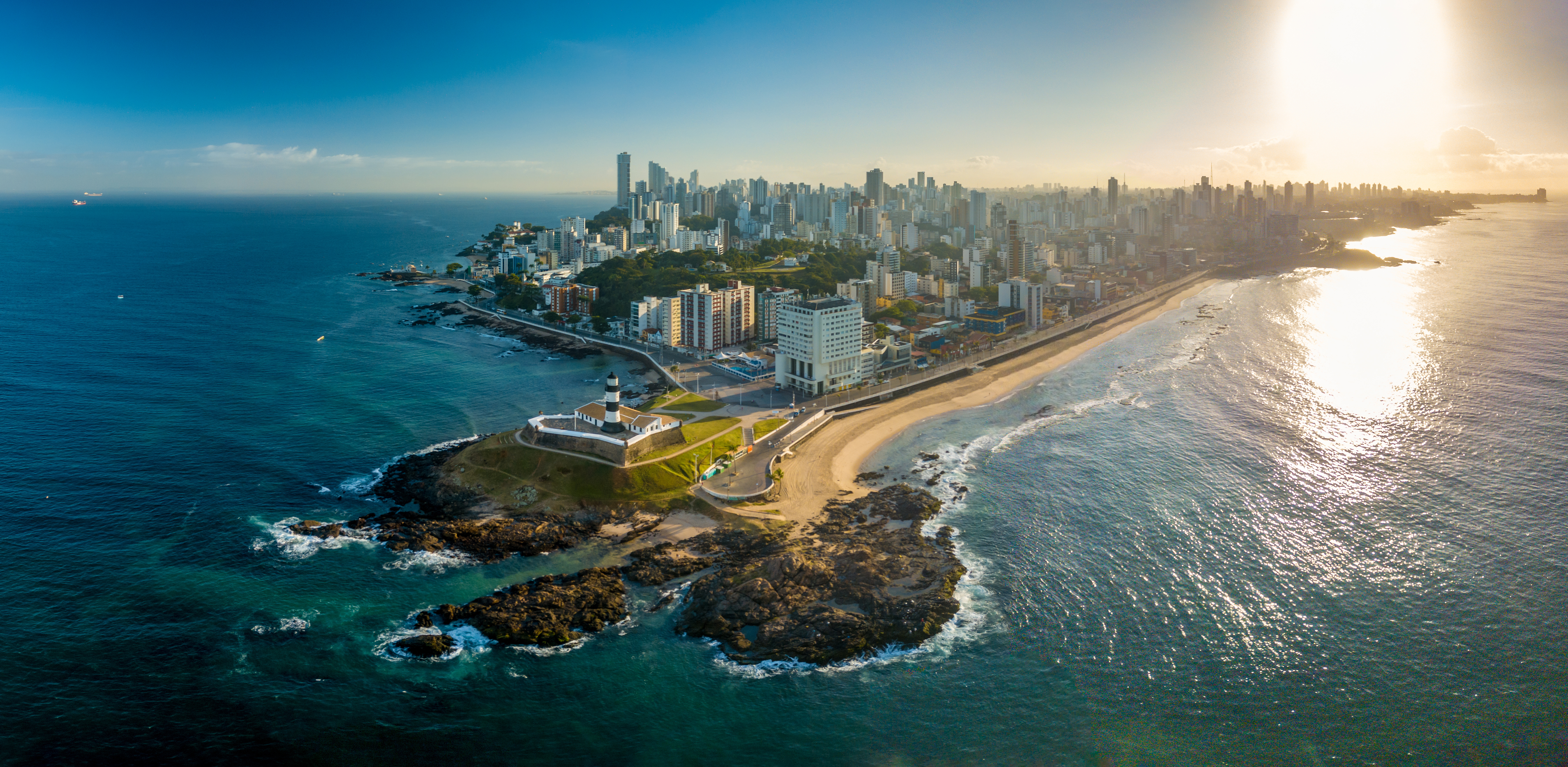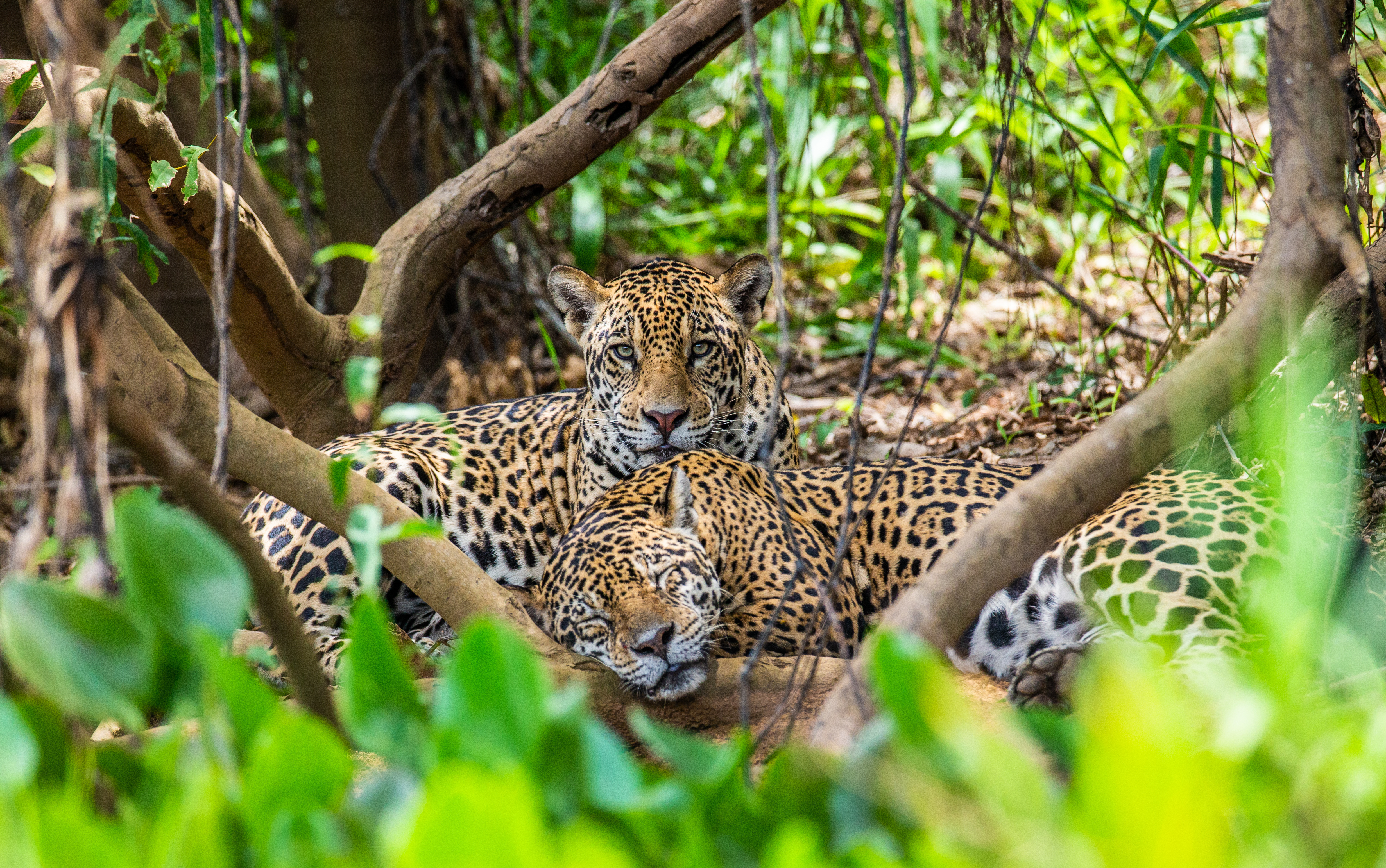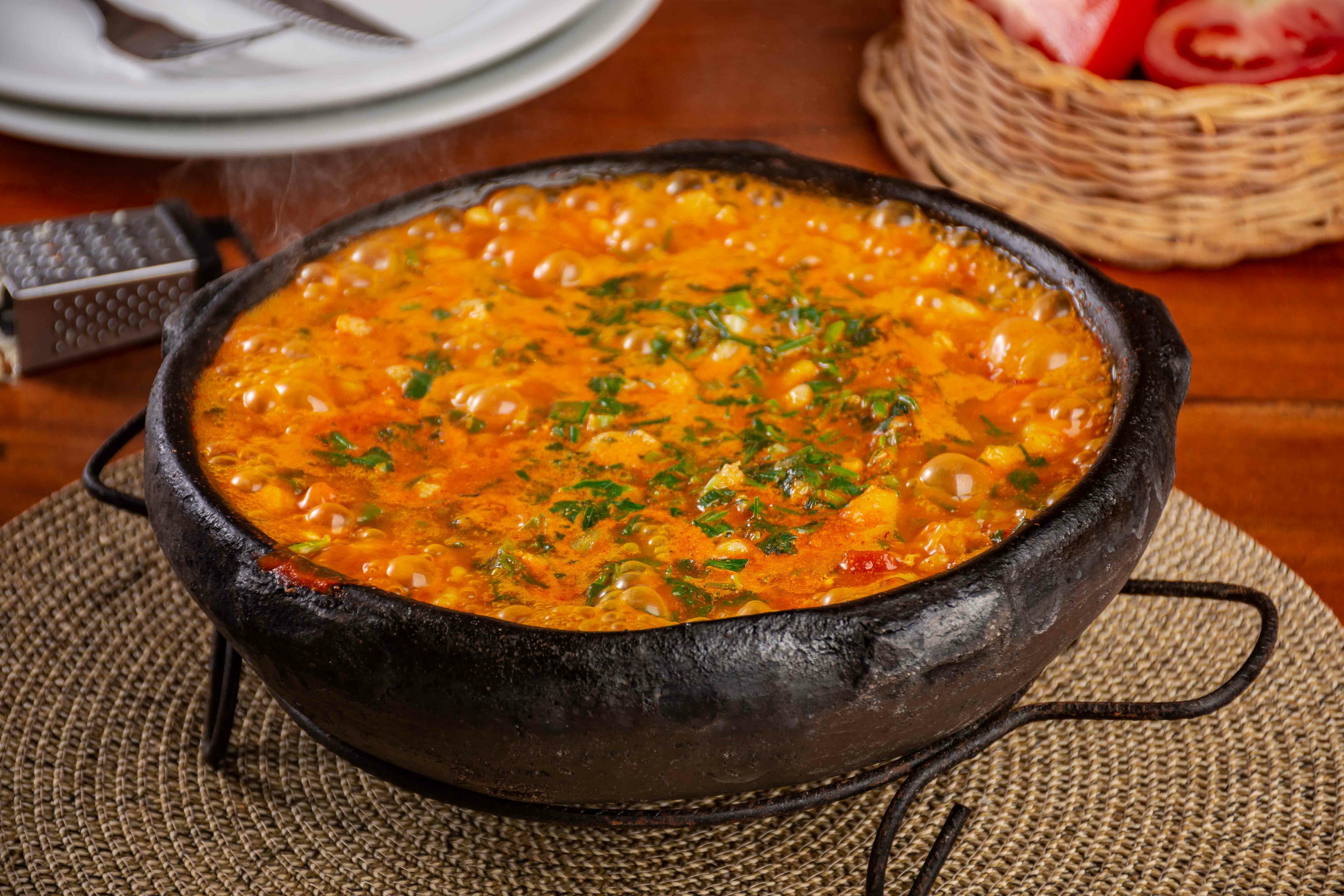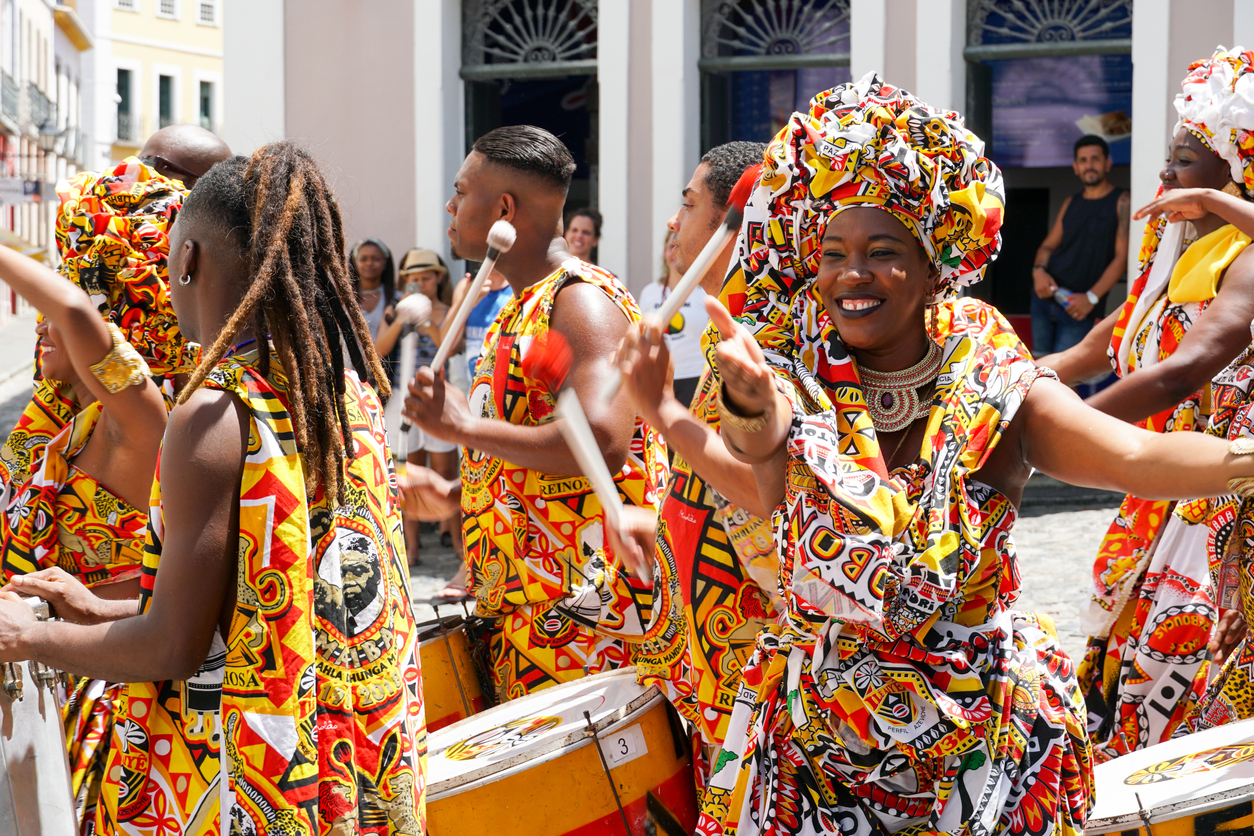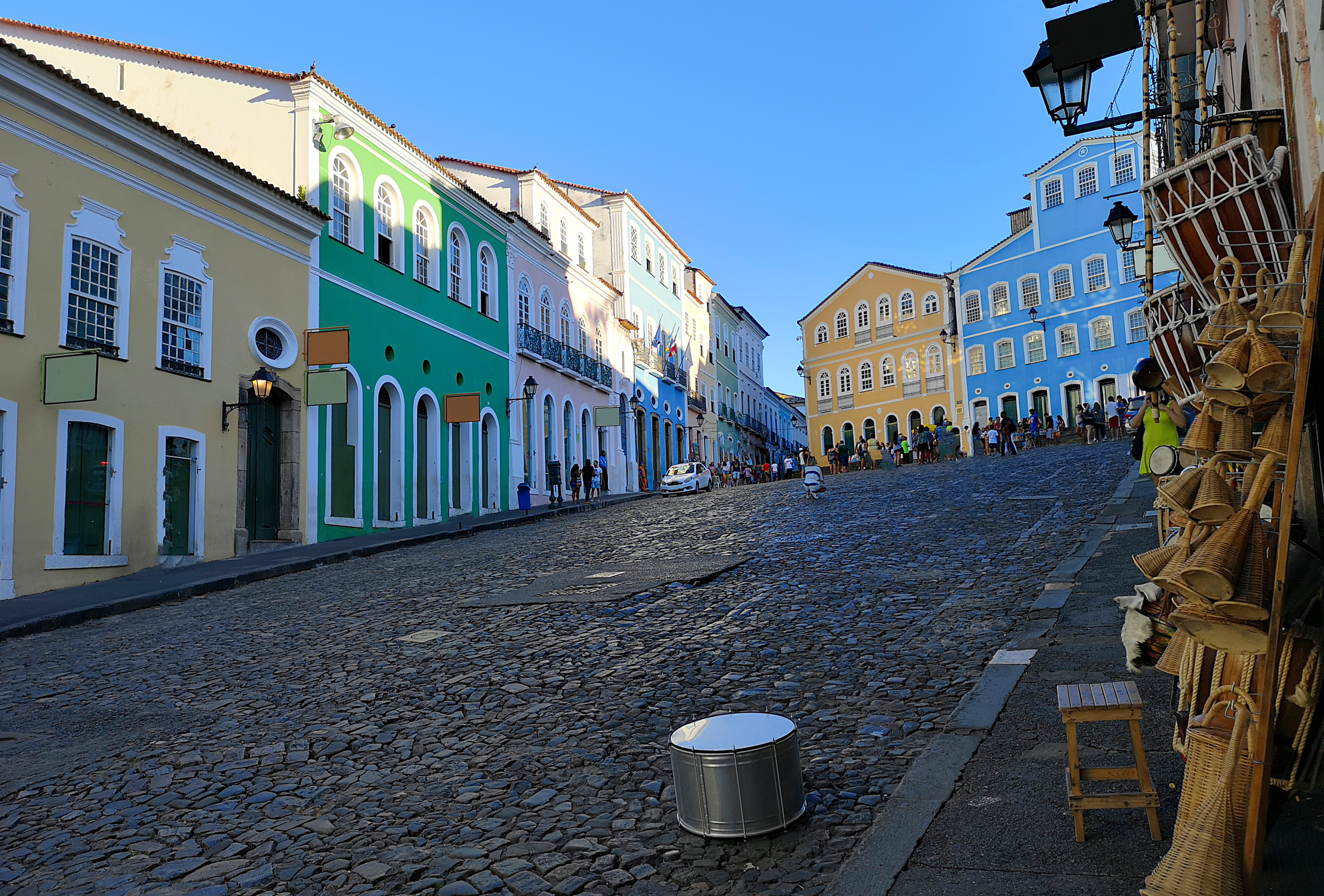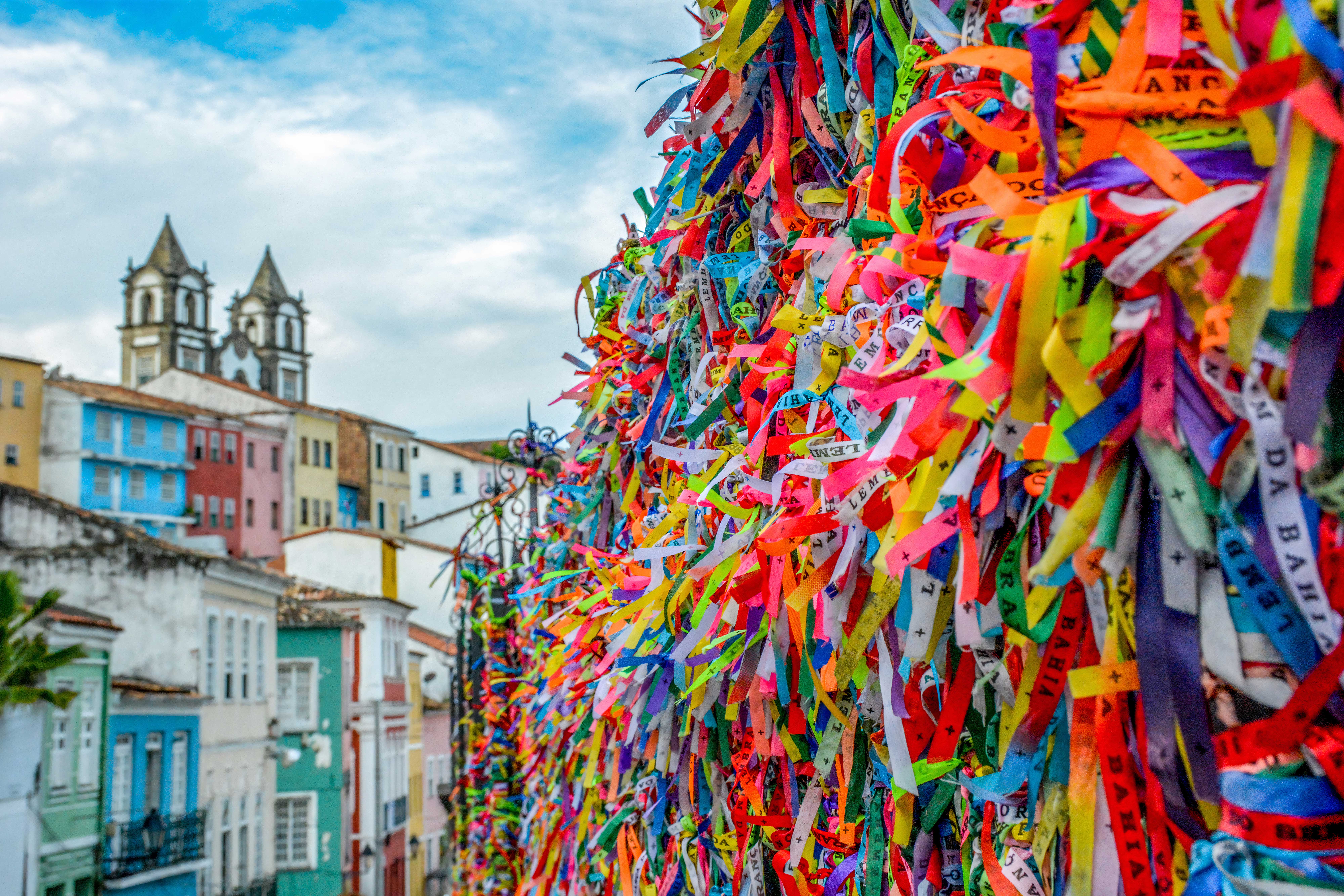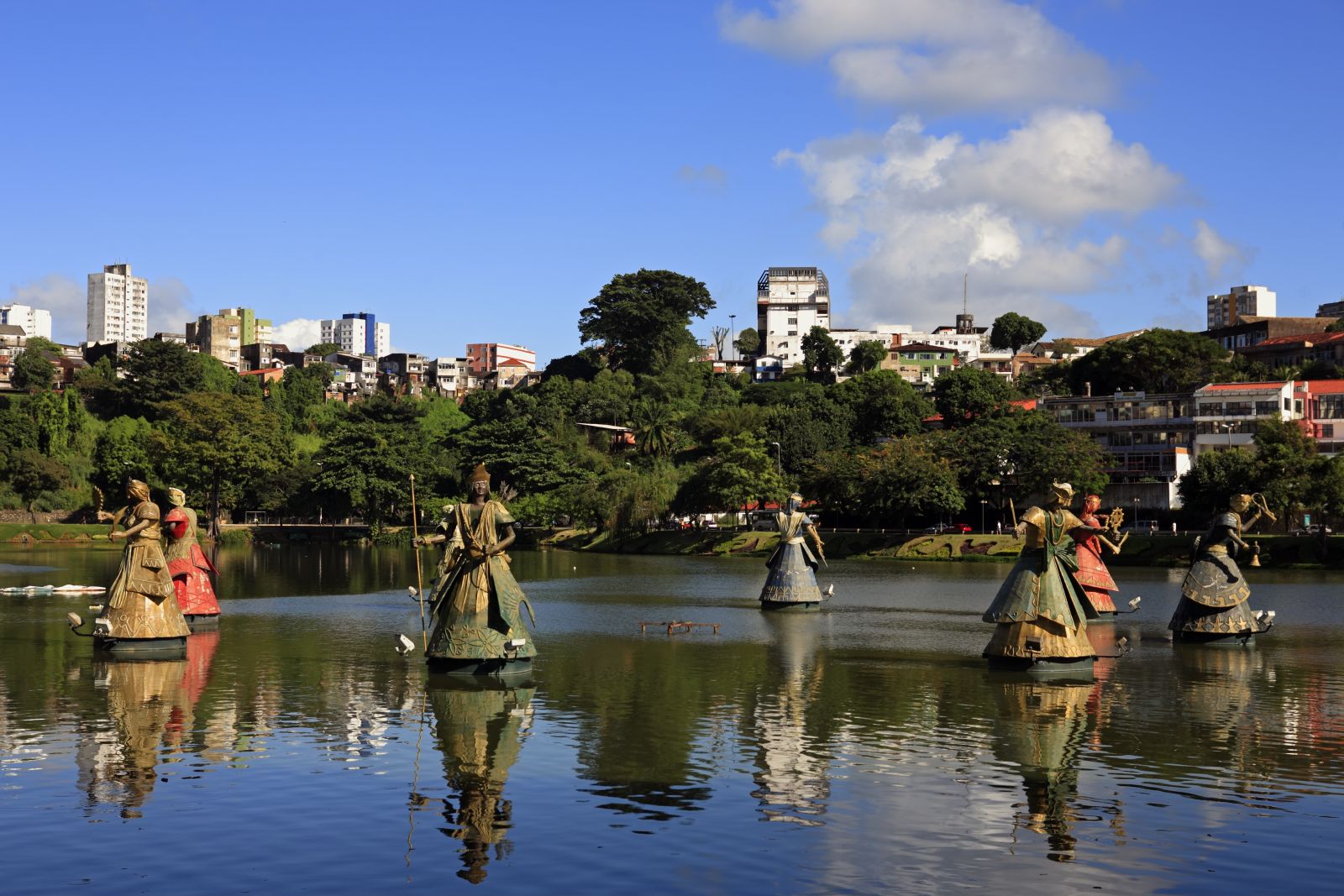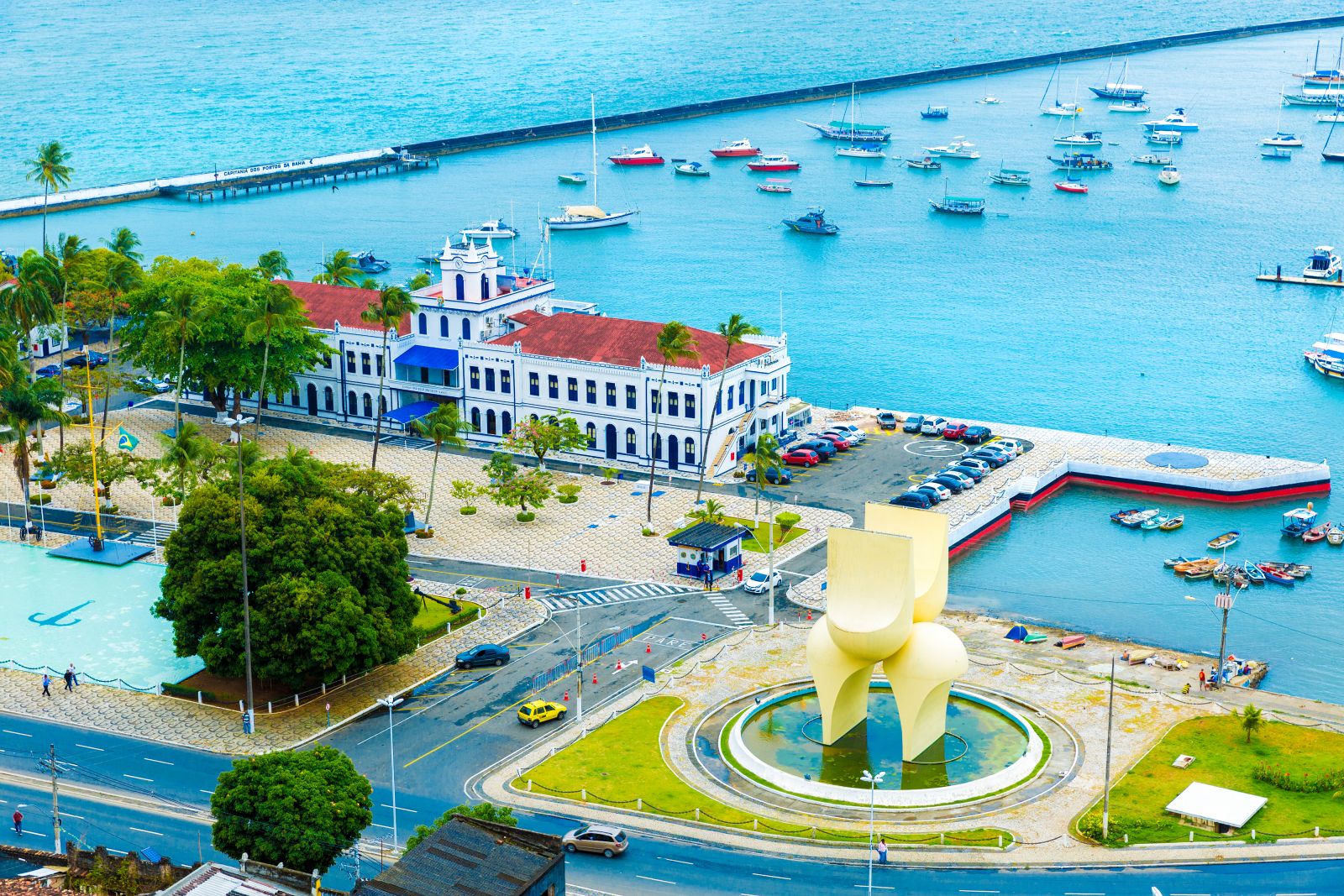Salvador, Bahia: A Brazilian City with Unmatched Energy & History
Once the magnificent capital of Portugal’s New World colony, Salvador boasts an unmatched energy and historic charm. The modern city encircles a vibrant historic district, a living museum showcasing 17th and 18th-century architecture. Explore cobbled streets lined with quaint cafes, chic boutiques, and a stunning church at its heart, offering an authentic glimpse of colonial Brazil.
Salvador is famous for its lively festivals throughout the year, including the world-renowned Carnival. The city is alive with the beat of drums, vibrant costumes, and dance performances set against the backdrop of colonial buildings. As night falls, Salvador transforms into a bustling hub of restaurants, bars, and lively open-air squares, where locals and tourists mingle in vibrant energy.
Salvador’s African heritage sets it apart from other Brazilian cities. Once the centre for African slavery, it is the place where descendants of slaves have beautifully preserved their cultural identity. From music and religion to dance and food, this cultural richness infuses the city with a unique character you won’t find elsewhere.
Just a short distance from Salvador is Trancoso, a tranquil coastal town known for its pristine beaches, colourful historic centre, and laid-back vibe. With charming cobblestone streets, vibrant cultural spots, and breathtaking natural beauty, Trancoso offers the perfect escape from the energy of Salvador, providing a serene yet captivating destination.
Why Visit Salvador?
Salvador offers a rich blend of history, culture, and vibrant energy. Whether you're exploring its historic centre, soaking in the lively Carnival atmosphere, or sampling traditional African-influenced cuisine, the city offers an experience like no other. The warm hospitality, the deep cultural roots, and the lively atmosphere make Salvador a must-visit destination for anyone looking to immerse themselves in Brazil's colourful history and diverse culture.
Latin Routes can arrange a guided walking tour of Salvador’s historic centre, ensuring you fully experience the city's dynamic energy and rich history. Speak to one of our Travel Specialists for more information.

Brazil

-3 hours

Real (BZL)

Historic Pelourinho
When is the best time to go to Bahia and Salvador?
Salvador can be visited year-round, thanks to its tropical climate. However, the best time to visit is between September and April, when temperatures are at their warmest. During this period, you can enjoy the city's vibrant festivals, stunning beaches, and outdoor activities in perfect weather. While Salvador is a fantastic destination at any time of year, visiting during these months offers the most pleasant temperatures and lively events, including the world-famous Carnival.
About Salvador and Things to Do and See Around Salvador
Salvador, the heart of Bahia, is a vibrant city blending African heritage, colonial history, and rich traditions. Once Brazil’s capital, it pulses with energy, from the lively Pelourinho district to the world-famous Carnival. Explore colonial architecture, enjoy local dishes, and relax on beautiful beaches in this captivating city.
Things to Do and See Around Salvador
- Explore Pelourinho: Wander the cobbled streets of Salvador's historic centre, with colonial architecture, museums, and vibrant cafes.
- Attend a Candomblé Ceremony: Experience this Afro-Brazilian religious ritual, often held in local churches and cultural centres.
- Visit the Elevador Lacerda: Take this iconic lift connecting the upper and lower cities, offering panoramic views of Salvador and the bay.
- Relax at Barra Beach: Enjoy Salvador's most popular urban beach, surrounded by restaurants, bars, and a lively atmosphere.
- Take a Capoeira Class or Watch a Performance: Experience Brazil's famous martial art and dance, with shows and lessons available in the city.
- Visit Mercado Modelo: Browse local handicrafts, jewellery, and souvenirs in this historic covered market near the Elevador Lacerda.
- Enjoy Salvador Carnival: If visiting during the festival season, join in or watch the world-famous Carnival celebrations, filled with music, dance, and parades.
- Taste Local Cuisine: Try Moqueca (seafood stew), Acarajé (deep-fried black-eyed peas with shrimp), and other Bahian dishes.
- Visit Igreja de Bonfim: Explore this famous church known for its colourful ribbons and Candomblé connections.
- Explore the Museum of Brazilian Art: Discover Salvador's rich history and culture through its collection of Brazilian artwork.
- Stroll through the Farol da Barra (Barra Lighthouse): Visit the iconic lighthouse offering scenic views of the coastline and Atlantic Ocean.
- Visit Dique do Tororó: Enjoy the serene beauty of this lake, featuring statues of Orixás and offering a peaceful spot for walks or boat rides.
- Discover Trancoso: A charming coastal town, a 75 minute flight south of Salvador, known for its pristine beaches, colourful historic centre, and laid-back atmosphere. Perfect for relaxation and exploration in a serene, beautiful setting.
Highlights of Salvador & Bahia
Some of the sights and experiences in and around Salvador & Bahia, Brazil
Speak to a Travel Specialist today
Bahia and Salvador Travel FAQs
Where is Bahia and why visit Salvador?
Bahia is a culturally rich state in northeastern Brazil, famous for its Afro-Brazilian heritage, vibrant music, and colourful colonial architecture. Salvador, the state capital, is known as Brazil’s “Capital of Happiness” thanks to its lively festivals, historic old town, and warm, welcoming atmosphere.
What is the historic centre of Salvador like?
The historic heart of Salvador, called Pelourinho, is a UNESCO World Heritage Site filled with colourful colonial buildings, cobbled streets, churches, and museums. It’s the cultural and spiritual hub of the city, offering an immersive experience into Bahia’s history and traditions.
When is the best time to visit Bahia and Salvador?
The best time to visit is during the dry season from September to March, which offers warm, sunny weather perfect for exploring and beach days. Bahia is also famous for its Carnival celebrations in February or March, one of the largest and most vibrant in Brazil.
What kind of music and dance is Bahia known for?
Bahia is the birthplace of several iconic Brazilian music styles, including samba-reggae, axé, and capoeira — a unique blend of martial arts, dance, and music. You can enjoy live performances throughout Salvador, especially in Pelourinho and during local festivals.
What local dishes should I try in Bahia?
Bahian cuisine is rich and flavourful, influenced by African, Indigenous, and Portuguese traditions. Must-try dishes include acarajé (fried black-eyed pea fritters filled with spicy shrimp), moqueca (Bahian fish stew with coconut milk and palm oil), and vatapá (creamy seafood and bread dish).
What are the best beaches to visit in Bahia and around Salvador?
Bahia is home to some of Brazil’s most beautiful beaches. Near Salvador, Porto da Barra and Flamengo Beach are popular for their calm waters and vibrant local scenes. For more pristine settings, head further along the coast to Praia do Forte, known for its turtle reserve, or Morro de São Paulo, a charming island with stunning sandy bays and crystal-clear water.
What festivals and events are unique to Salvador and Bahia?
Salvador is famous for its lively Carnival, which is one of the largest street parties in the world, featuring music, dancing, and colourful parades. Other key festivals include the Festa de Iemanjá in February, a celebration of the sea goddess with offerings and rituals, and the Lavagem do Bonfim, a religious and cultural event blending Catholic and Afro-Brazilian traditions, held every January.

